6-Month HVACR Course Outline
A 6-month HVACR course in rawalpindi Pakistan is designed to provide students with the essential knowledge and skills to enter the workforce as entry-level technicians. The focus is on a practical approach, ensuring you can perform basic tasks upon graduation. Here’s a general outline of what you can expect:
Month 1-2:
- Safety: Safety regulations, procedures, and use of personal protective equipment (PPE).
- Introduction to HVACR: An overview of Heating, Ventilation, Air Conditioning, and Refrigeration systems.
- Electrical Fundamentals: Basic electrical theory, components, diagrams, and troubleshooting.
- Refrigeration Cycle: The science behind refrigeration, components (compressors, condensers, evaporators, expansion devices) and their functions.
Month 3-4:
- Air Conditioning Systems: Types of air conditioning systems (split units, window units, central air conditioners), their installation, operation, and maintenance.
- Refrigeration Systems: Commercial and domestic refrigeration systems (walk-in coolers, freezers, refrigerators), their components and troubleshooting, HVAC course in Rawalpindi.
- Brazing and Soldering: Safe handling and techniques for brazing and soldering copper pipes used in HVACR systems.
Month 5–6:
- HVAC Controls: Thermostats, relays, and other control systems used in HVACR equipment.
- Troubleshooting: Techniques used to diagnose and troubleshoot common problems in HVACR systems, HVAC course in Rawalpindi.
- Hands-on Labs: Students will apply the learned knowledge through practical exercises on trainers and equipment, simulating real-world scenarios.
One-Year HVACR Course in rawalpindi Outline in Pakistan
A one-year HVACR course in Rawalpindi program offers a more comprehensive education, building upon the foundation of the 6-month course. It delves deeper into technical aspects, includes more advanced troubleshooting, and may cover additional specializations. Here’s a possible structure:
Month 1-4:
Same curriculum as the 6-month course.
Month 5-8:
- Advanced Electricity: In-depth study of electrical components used in HVACR systems, motors, transformers, and electrical control circuits, including HVAC training.
- Advanced Refrigeration: Advanced refrigeration theory, system optimization, and troubleshooting complex refrigeration issues.
- Hydronics: Hydronic heating systems (boilers, pumps, piping), their operation and maintenance, HVAC course.
- Air Distribution Systems: Design and installation of ductwork, air handlers, and other components responsible for air distribution within a building.
Month 9-12:
- HVAC System Design: Basics of HVAC system design considering factors like building load calculations and equipment selection.
- Building Automation Systems (BAS): Introduction to Building Automation Systems used to control and monitor HVAC equipment in the HVACR course in Rawalpindi.
- Specialty Areas: Depending on the program, students may be introduced to specializations like solar thermal systems, green building practices in HVACR training in Rawalpindi, or commercial refrigeration. .v
- Advanced Troubleshooting: Students will gain experience troubleshooting complex system malfunctions through practical scenarios.
- Internship (Optional): Some programs may offer internship opportunities to gain real-world experience under the supervision of qualified professionals.
Additional Considerations:
- Entry Requirements: Most 6-month courses require a Matriculation (secondary school) qualification, while some year-long programs might have a F.Sc. (Intermediate) requirement in science subjects.
- Delivery Methods: Courses can be offered full-time, part-time, or through a blended learning approach (combining classroom instruction with online modules).
- Assessment: Assessment methods might include written exams, practical skills tests, and project work.
- Career Opportunities: Graduates can find employment in various sectors, including construction companies, building management, HVAC service companies, and refrigeration businesses.
Refrigeration Cycle in HVACR Course:
- Vapor Compression Cycle: In-depth exploration of the four main stages (evaporation, compression, condensation, expansion) and their role in cooling.
- Refrigerants: Properties and types of refrigerants used in HVACR systems, including safety considerations and environmental regulations, are key topics covered in an HVAC course.
- Pressure-enthalpy (P-h) Diagrams: Understanding P-h diagrams to analyze refrigeration processes visually.
Air Conditioning Systems in HVACR Course in Rawalpindi:
- Load Calculations: Calculating the cooling load a system needs to handle for optimal performance in a specific building.
- Air Handling Units (AHUs): Function, components, and selection of AHUs for different applications.
- Duct Design: Principles of duct design, including sizing, materials, and layout considerations.
Electrical Fundamentals (Advanced):
- Motors: Types of motors used in HVACR systems (AC motors, DC motors, variable-speed drives) and their control methods.
- Transformers: Understanding transformer operation and their role in supplying power to HVACR equipment.
- Electrical Control Circuits: Reading and interpreting electrical schematics used in HVACR systems.
Troubleshooting:
- System Diagnostics: Using specialized tools like multimeters and pressure gauges to diagnose malfunctions.
- Common System Faults: Troubleshooting specific issues common in different types of HVACR equipment.
- Repair Procedures: Safe and proper methods for repairing various components within HVACR systems.
Additional Specialized Topics (Optional – One-Year Programs):
- Solar Thermal Systems: Understanding how solar energy can be harnessed for heating and cooling purposes.
- Green Building Practices in HVAC: Energy-efficient HVAC system design and installation for sustainable buildings.
- Commercial Refrigeration: Advanced systems used in large-scale refrigeration
Practical Training and Hands-on Labs:
A crucial aspect of HVACR training is the practical application of theoretical knowledge. Look for courses that offer well-equipped workshops and labs where you can:
- Practice using tools like refrigerant recovery units, vacuum pumps, and leak detectors.
- Perform tasks like brazing copper pipes, installing electrical components, and charging refrigerant systems.
- Disassemble and reassemble various HVACR equipment for a deeper understanding.
Certification Opportunities:
While not mandatory for entry-level positions, some employers might prefer candidates with industry certifications. An HVACR course in Rawalpindi can help you explore certifications like:
- Refrigerant Handling Certification: Demonstrates your knowledge of safe handling practices for refrigerants.
- HVAC Technician Certification offered by TEVTA or NAVTTC: May enhance your job prospects and credibility.
Continuous Learning and Skill Development:
The HVACR course in rawalpindi field is constantly evolving with advancements in technology and regulations. Consider these options for staying updated:
- Industry publications and online resources: Stay informed about new technologies and best practices.
- Advanced or specialized HVACR courses: Enhance your skillset in specific areas like commercial refrigeration or building automation systems.
- Manufacturer training programs: Learn about the latest equipment and service procedures offered by specific brands.
Internship Opportunities:
Some HVACR programs might offer internship placements to gain real-world experience under the supervision of qualified technicians. This can be a valuable way to:
- Apply your classroom knowledge in a practical setting.
- Build your professional network.
- Gain valuable references for future job applications.
Safety Considerations:
Working with HVACR systems involves potential hazards like electrical shock, exposure to refrigerants, and working at heights. Enrolling in an HVACR course in Rawalpindi ensures you receive thorough training on safety protocols and proper use of Personal Protective Equipment (PPE) during practical sessions.
Considering these additional aspects, you can maximize the value of your HVACR course in Rawalpindi Pakistan and prepare yourself for a successful career in this growing field.
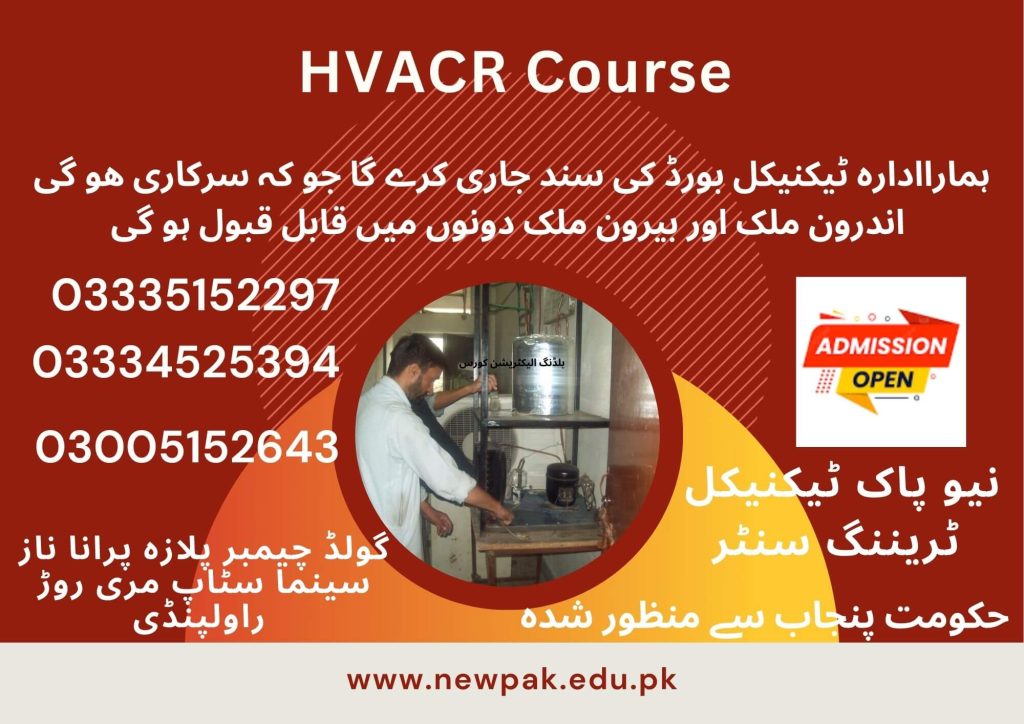
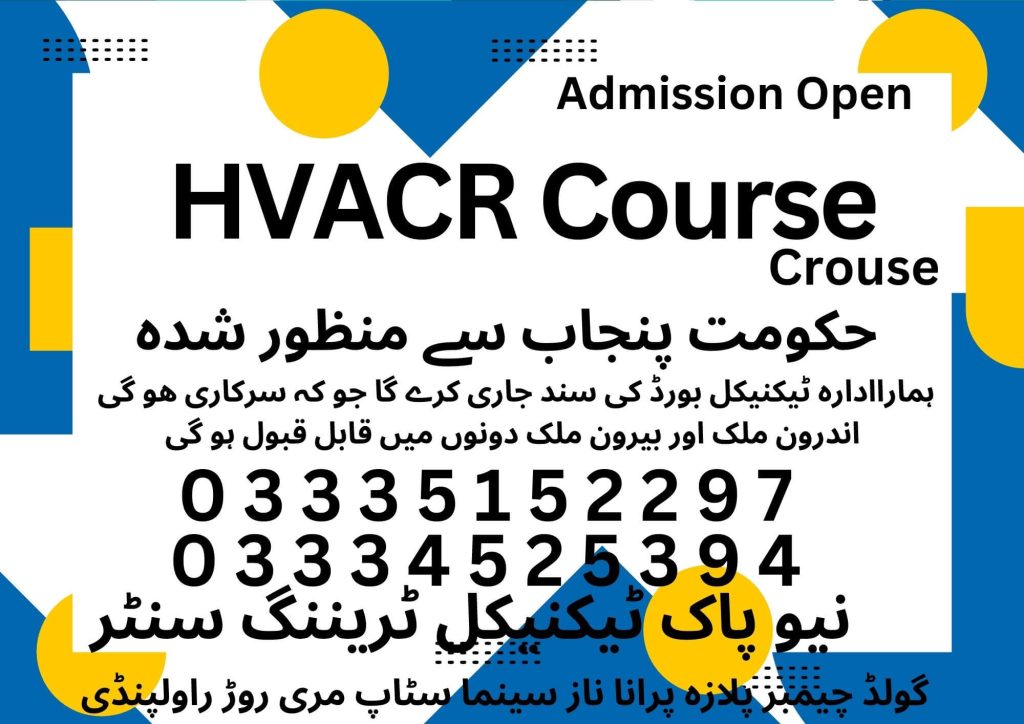
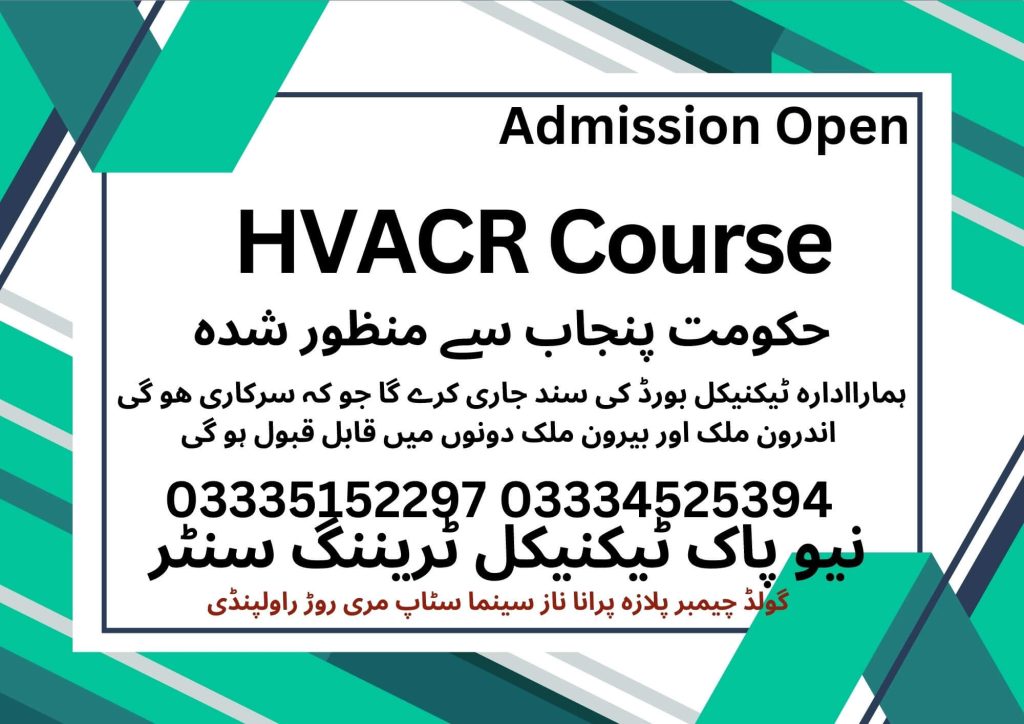
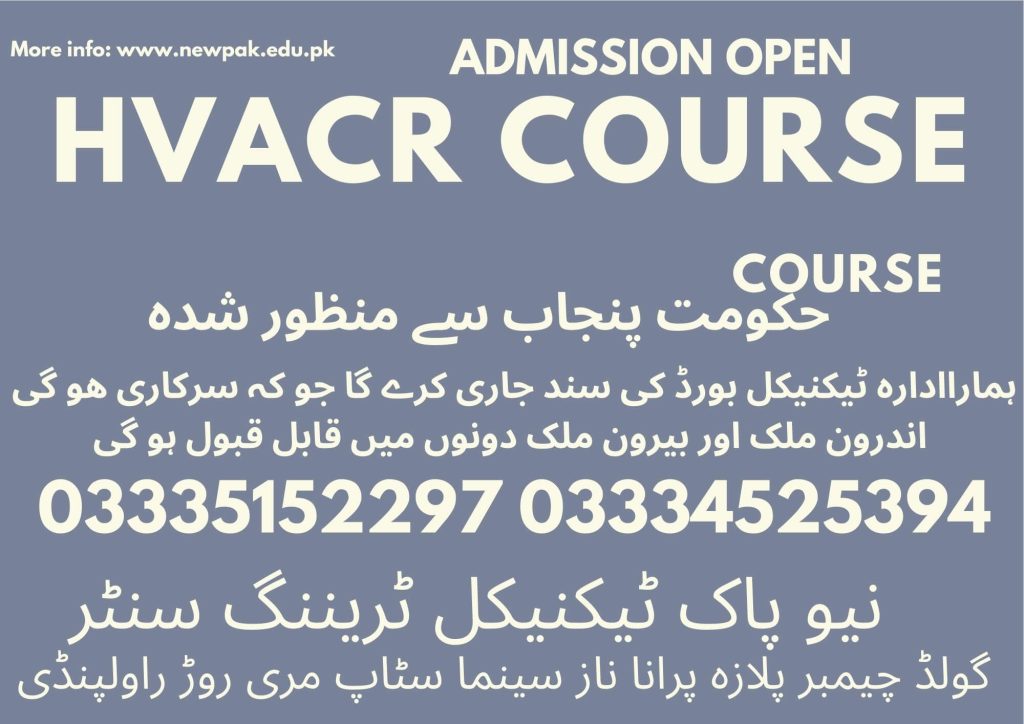
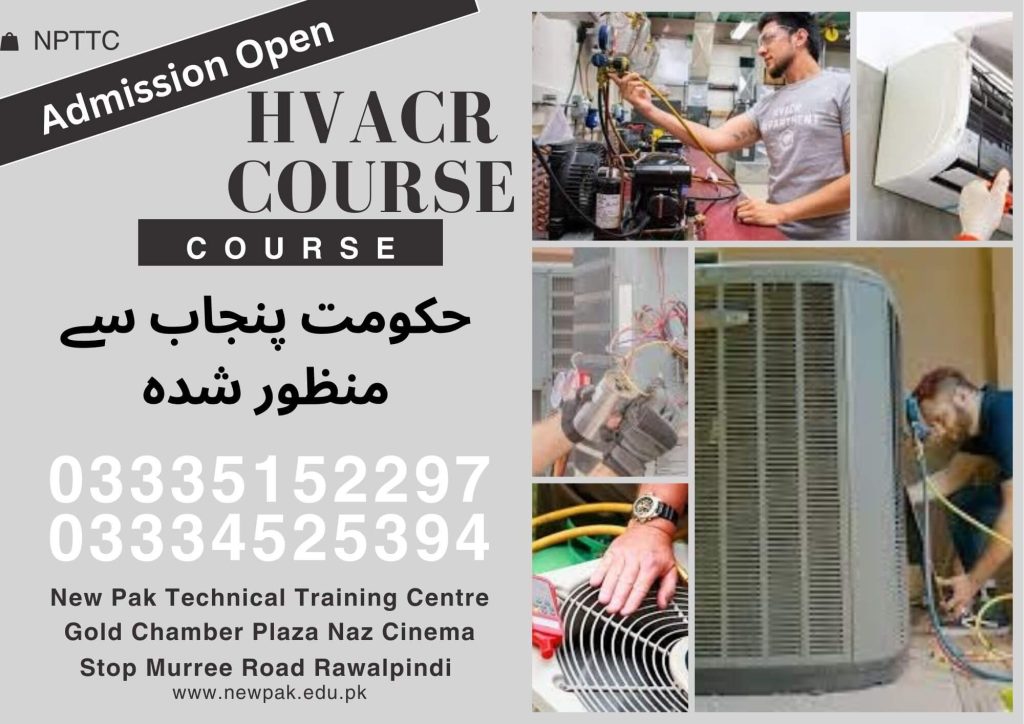
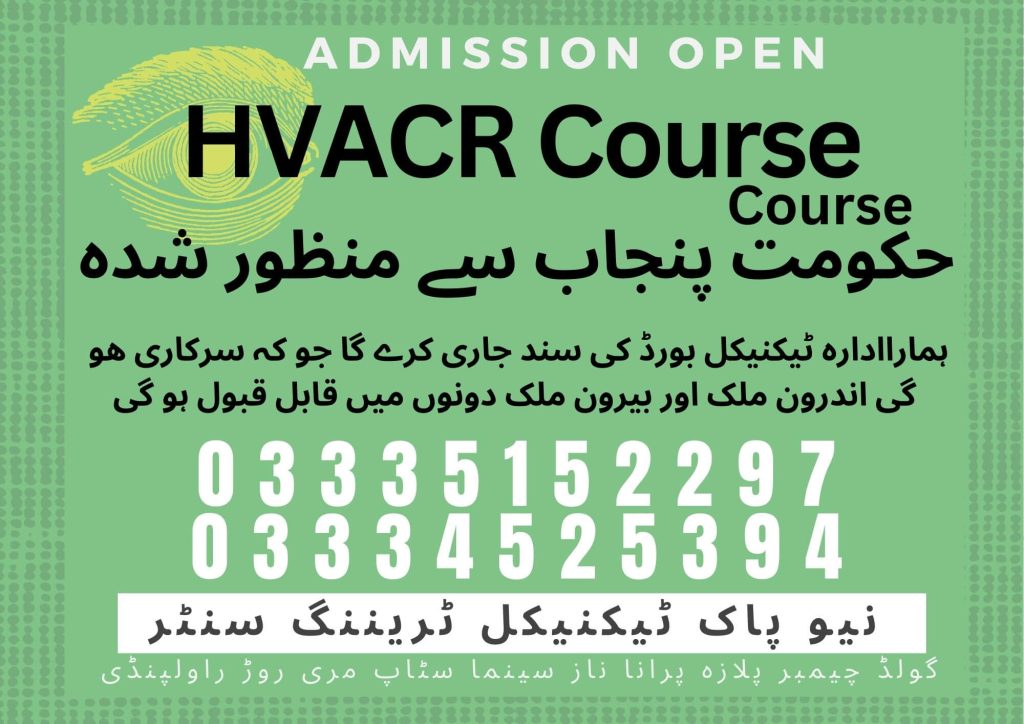
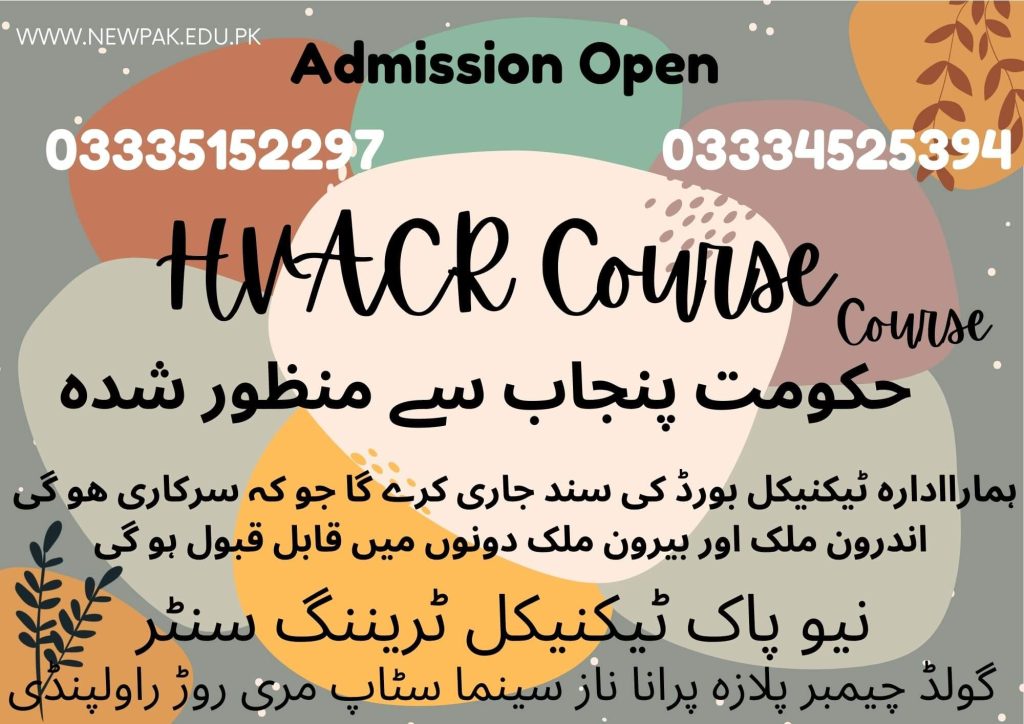
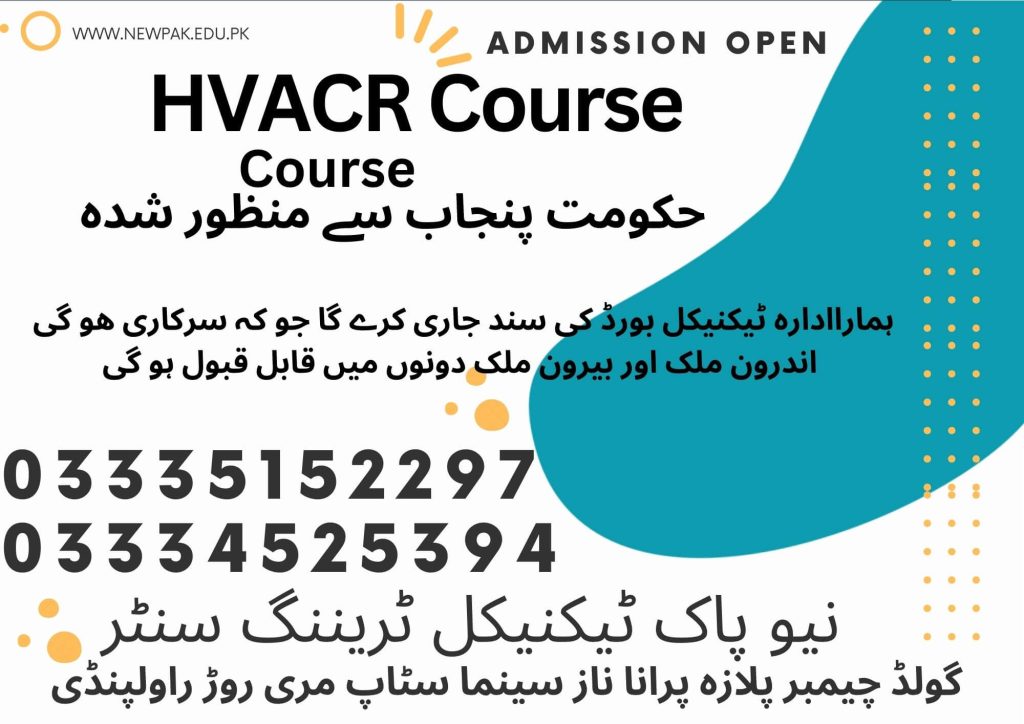
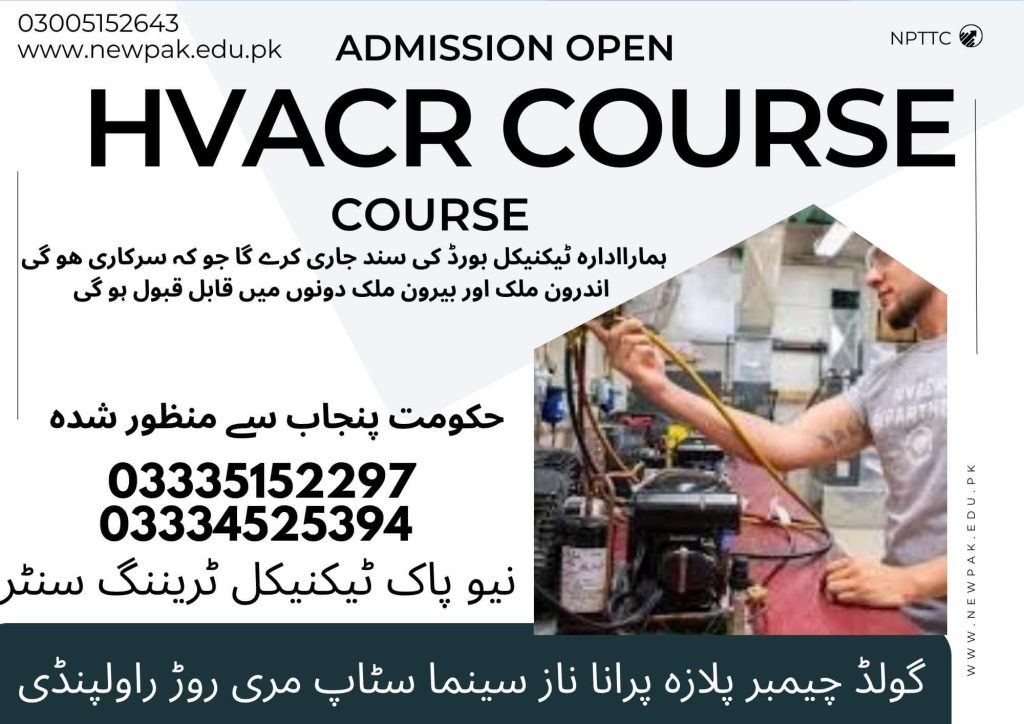
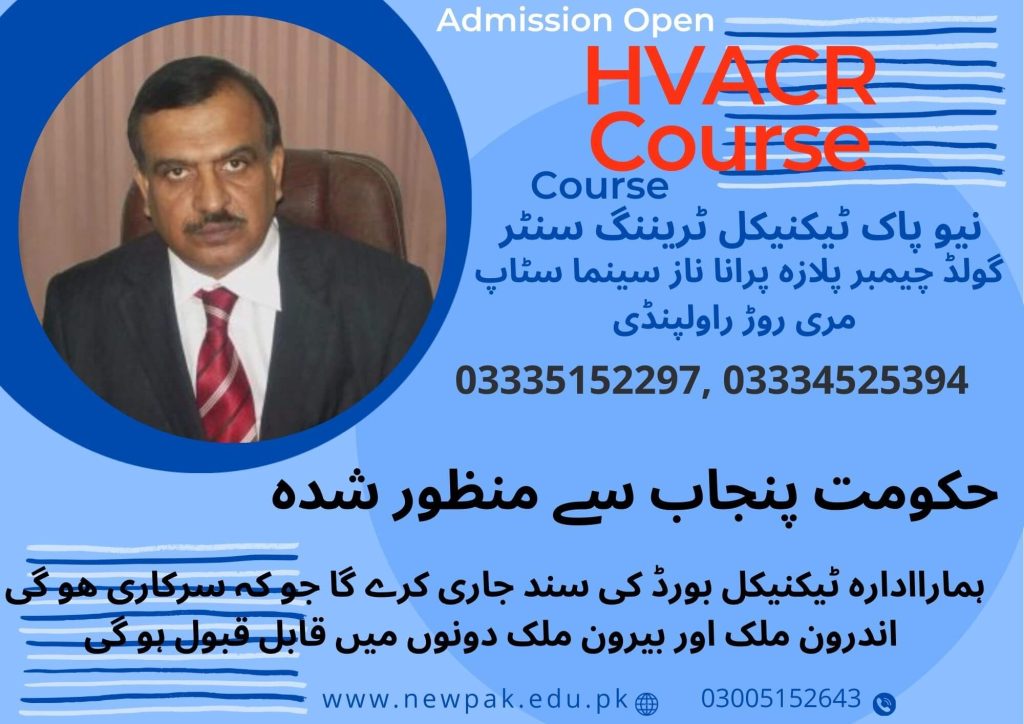
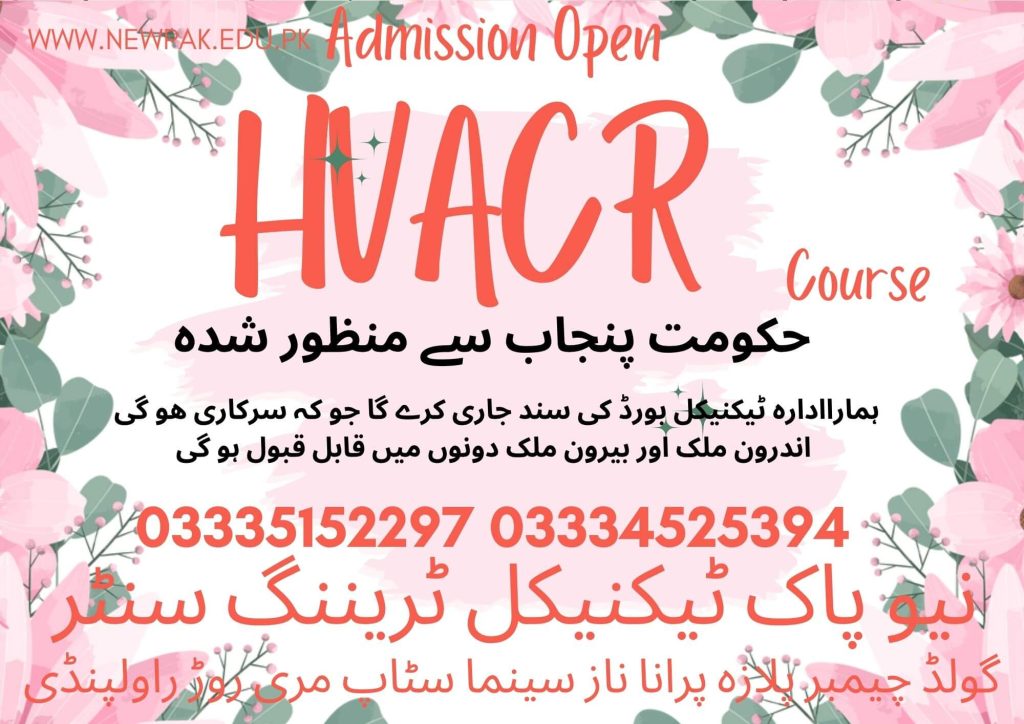
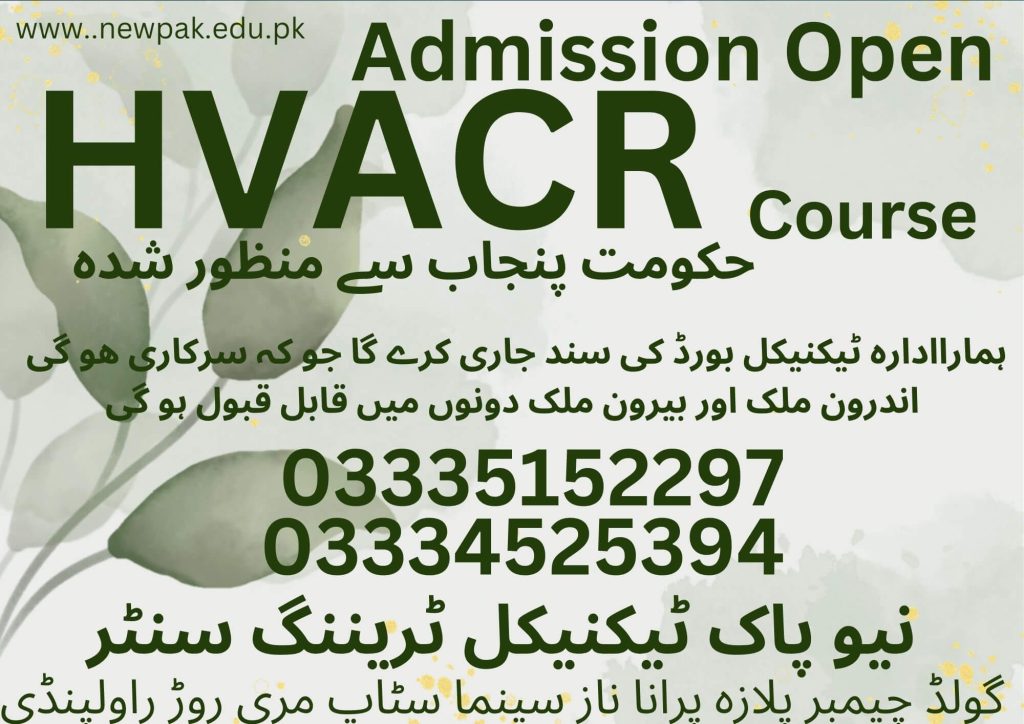
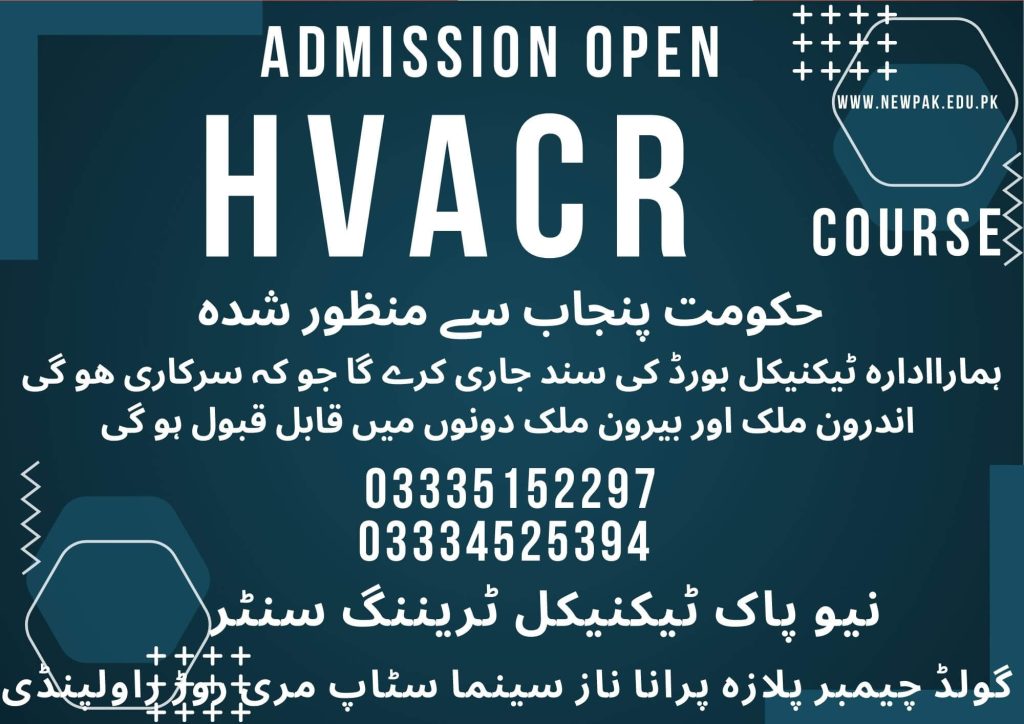
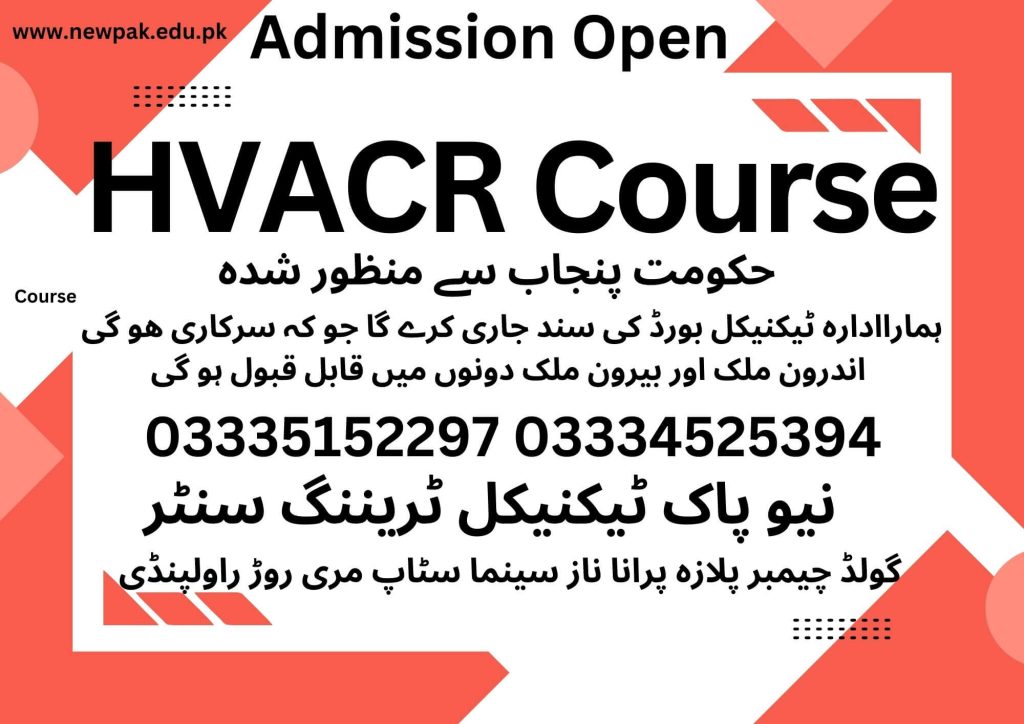
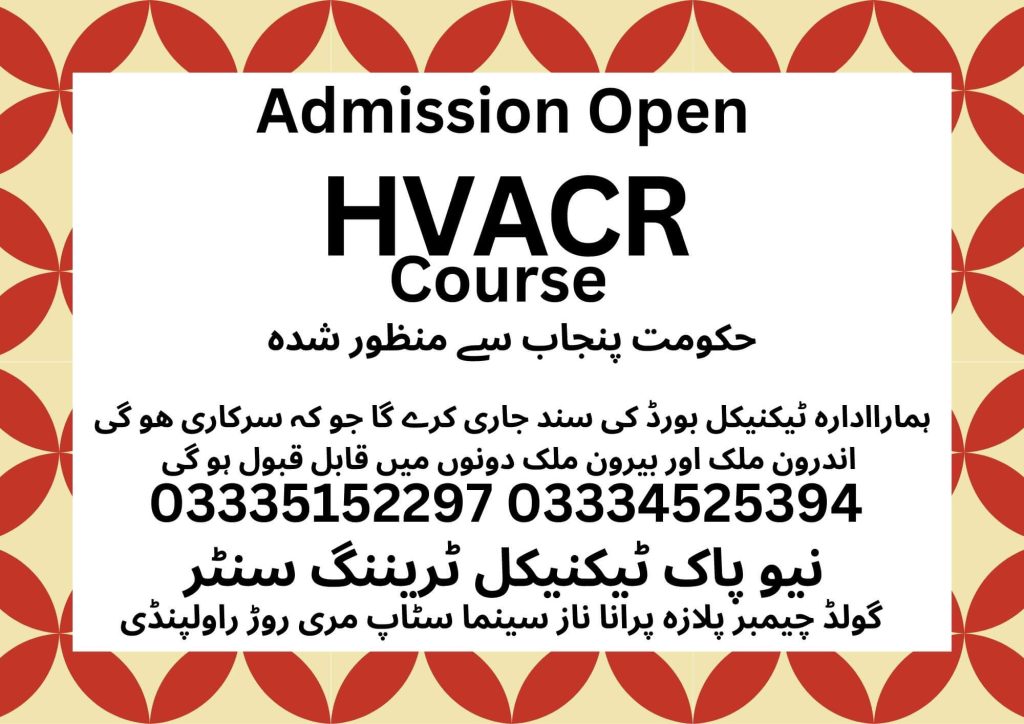
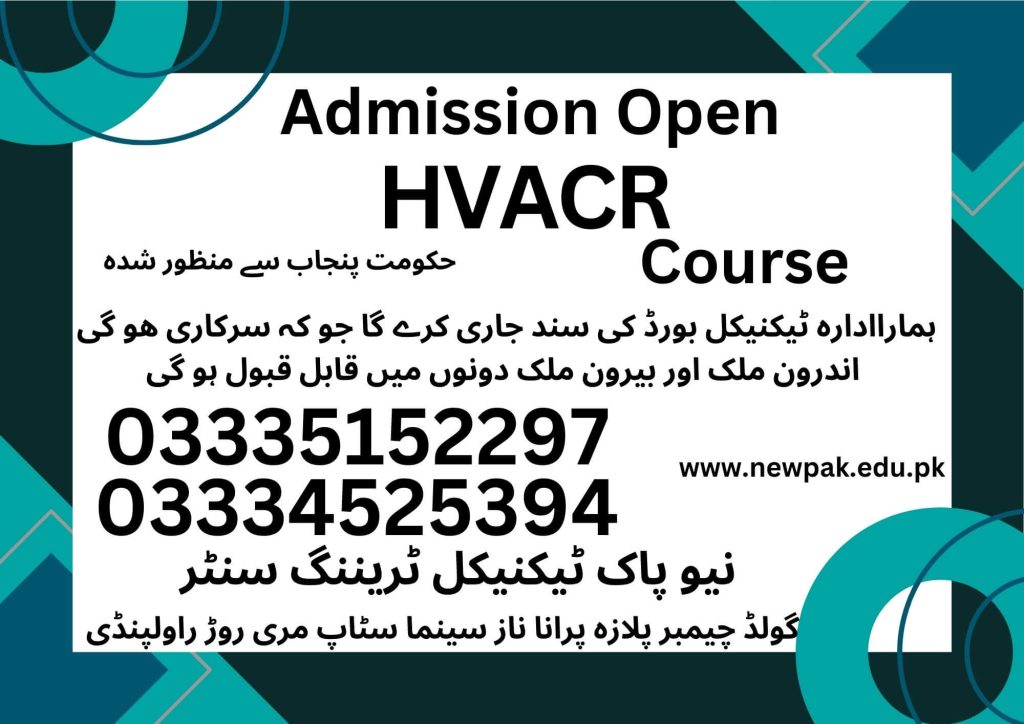

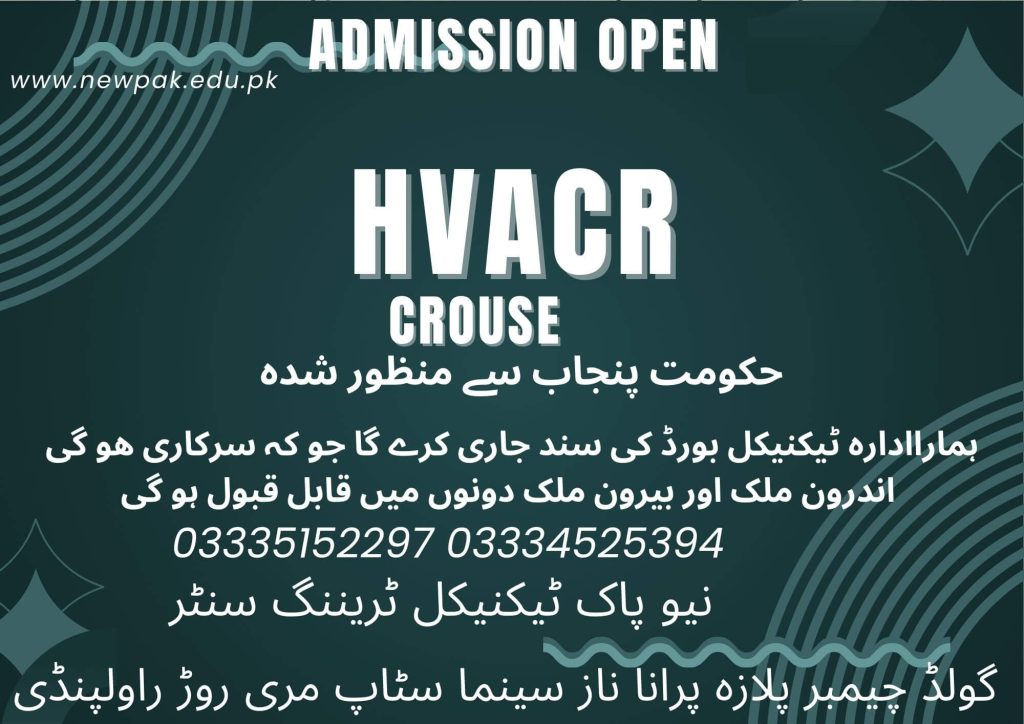
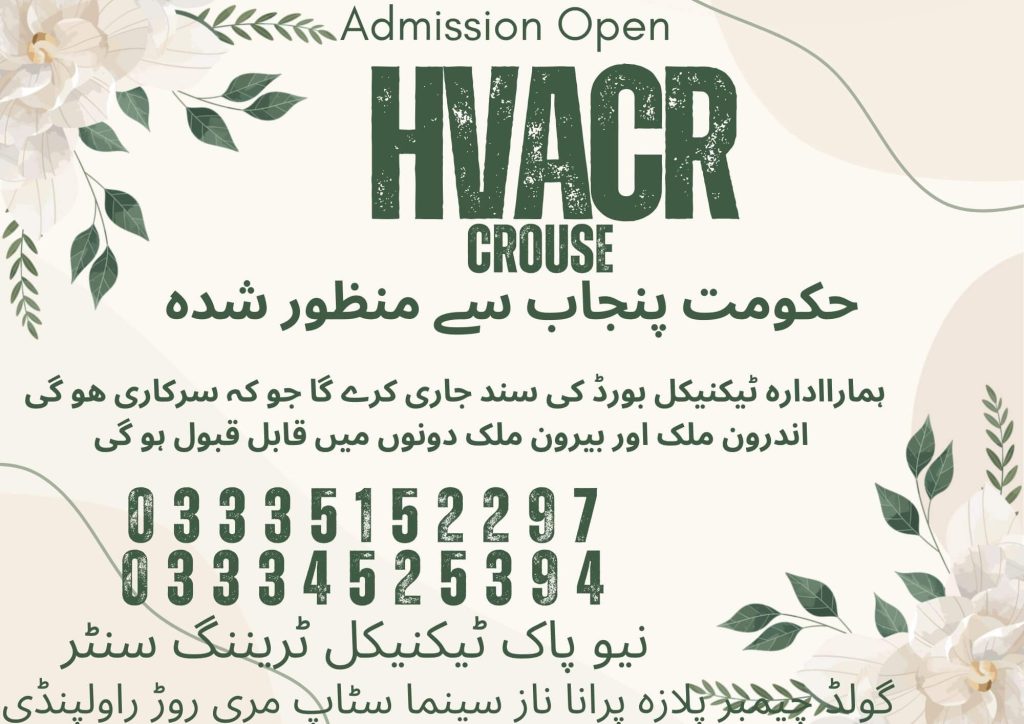
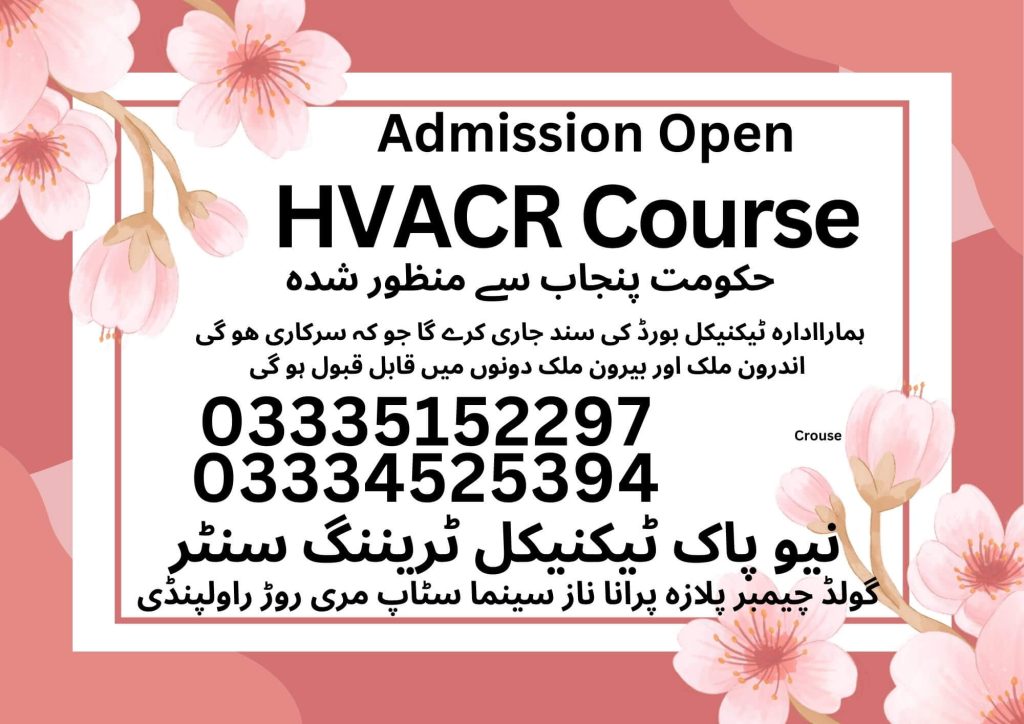
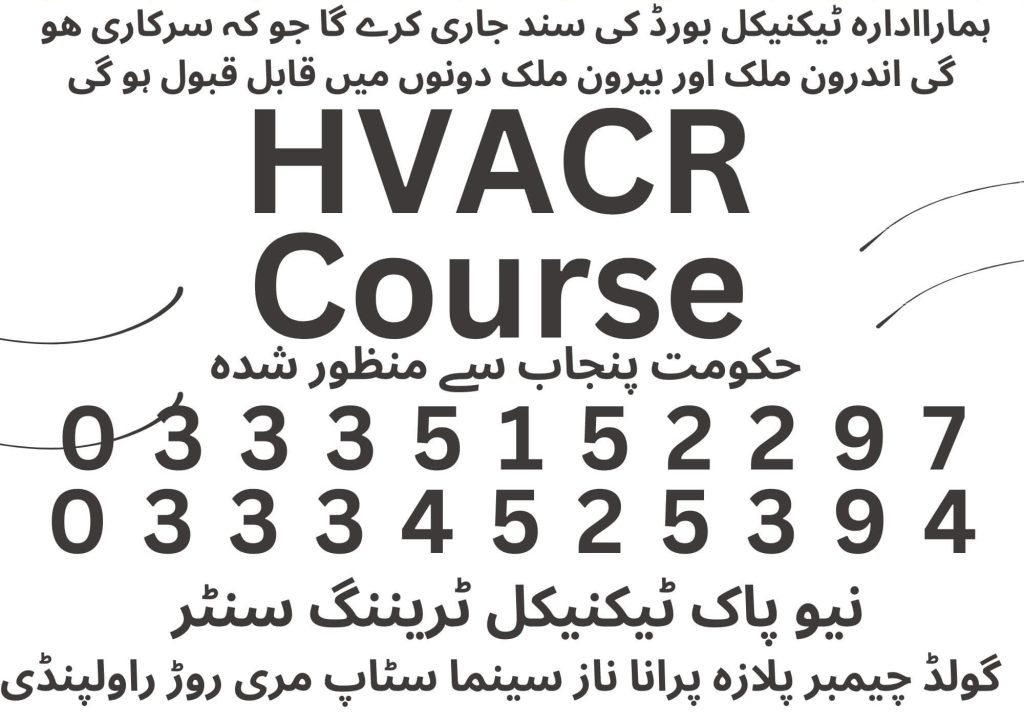
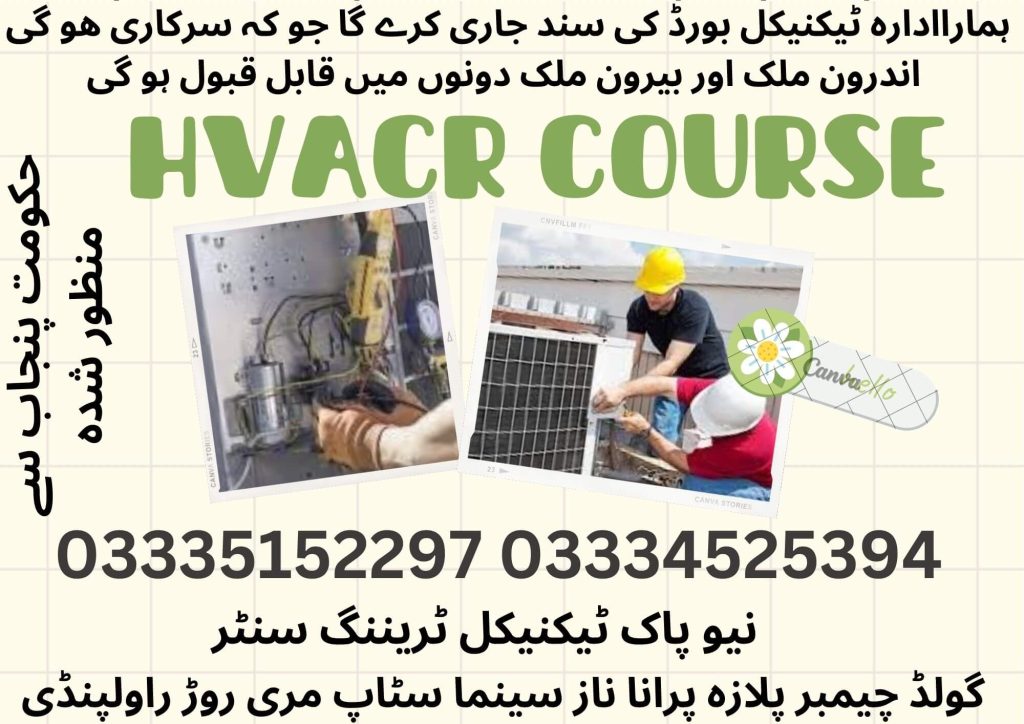
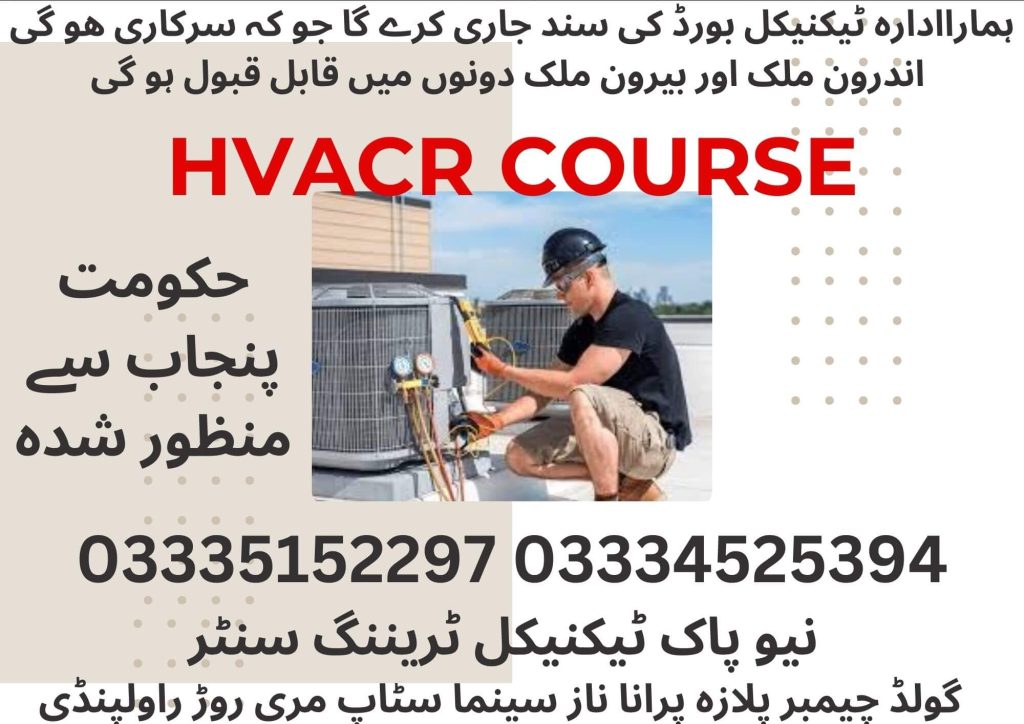
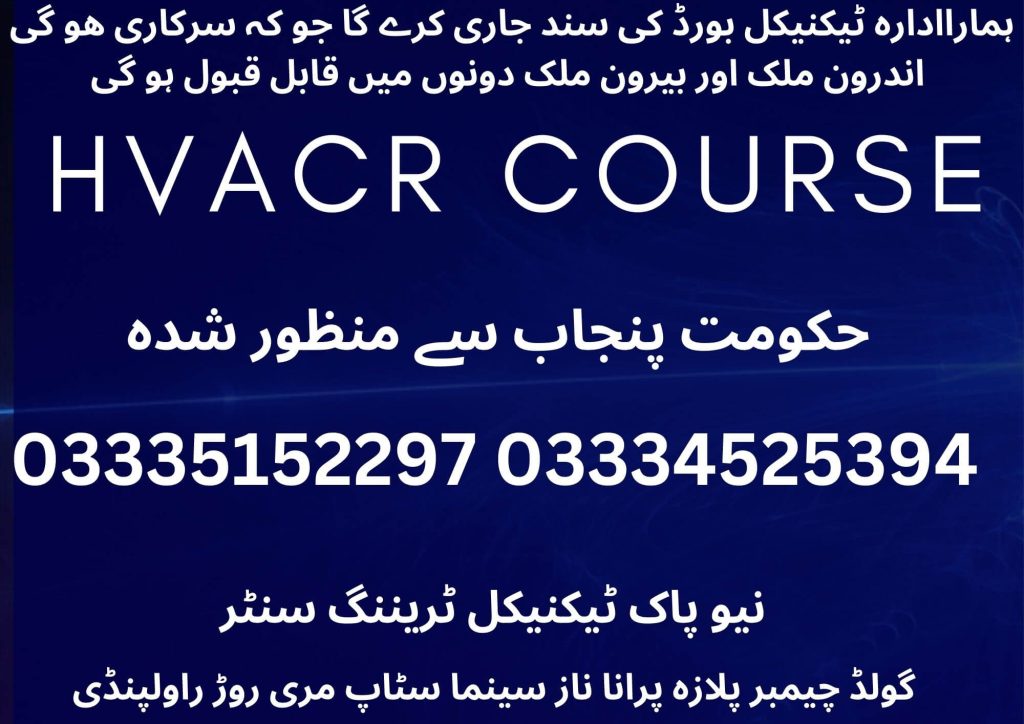
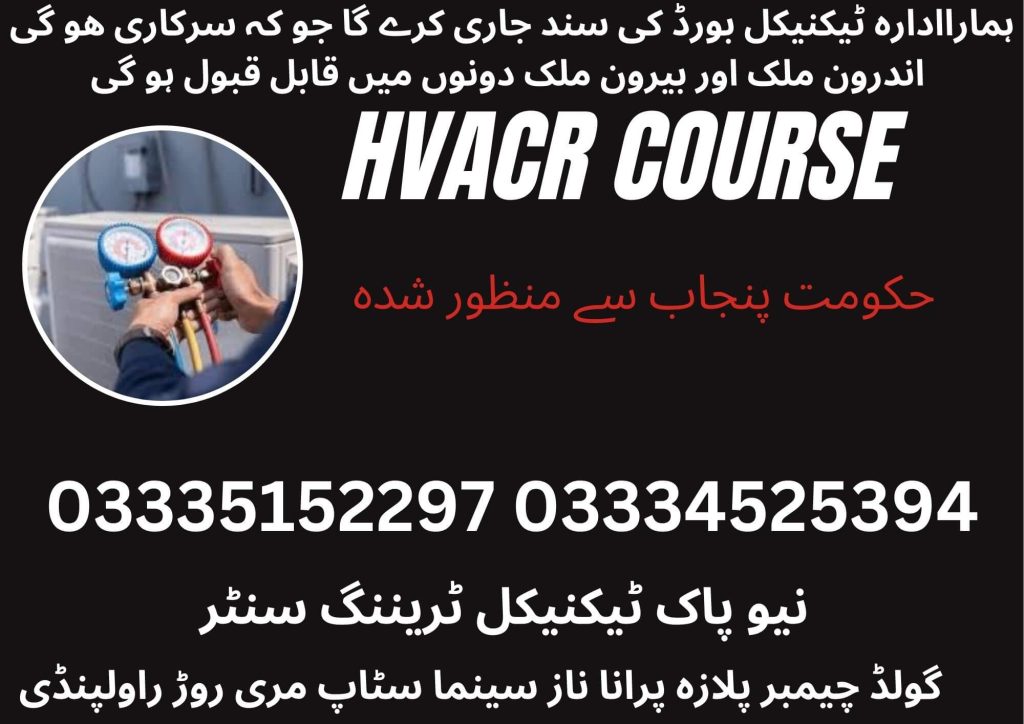
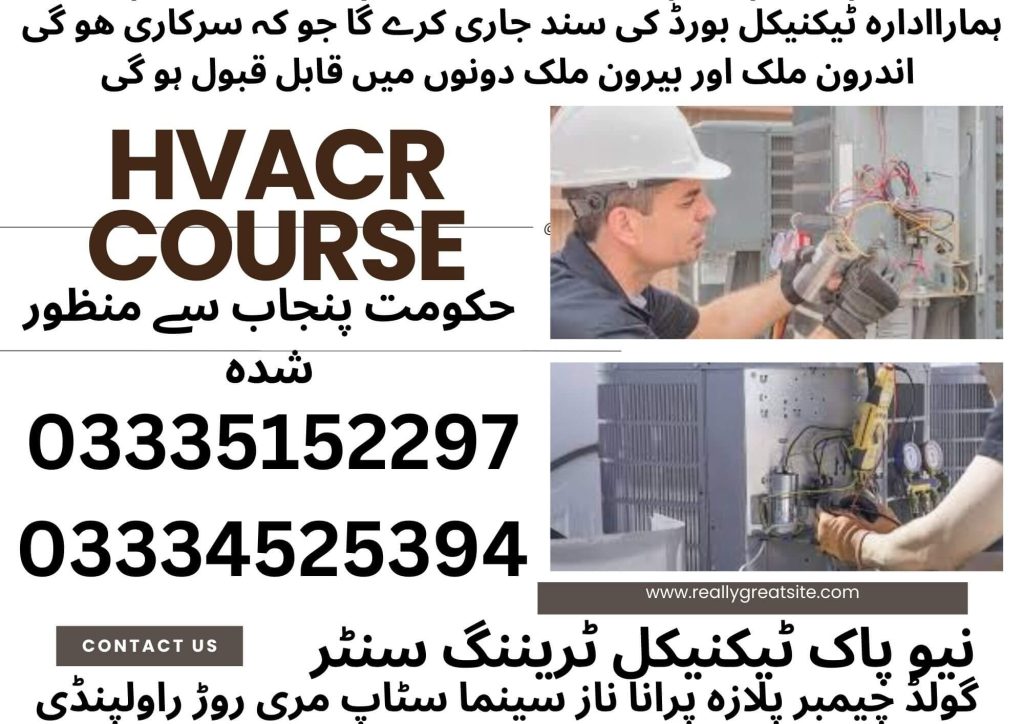
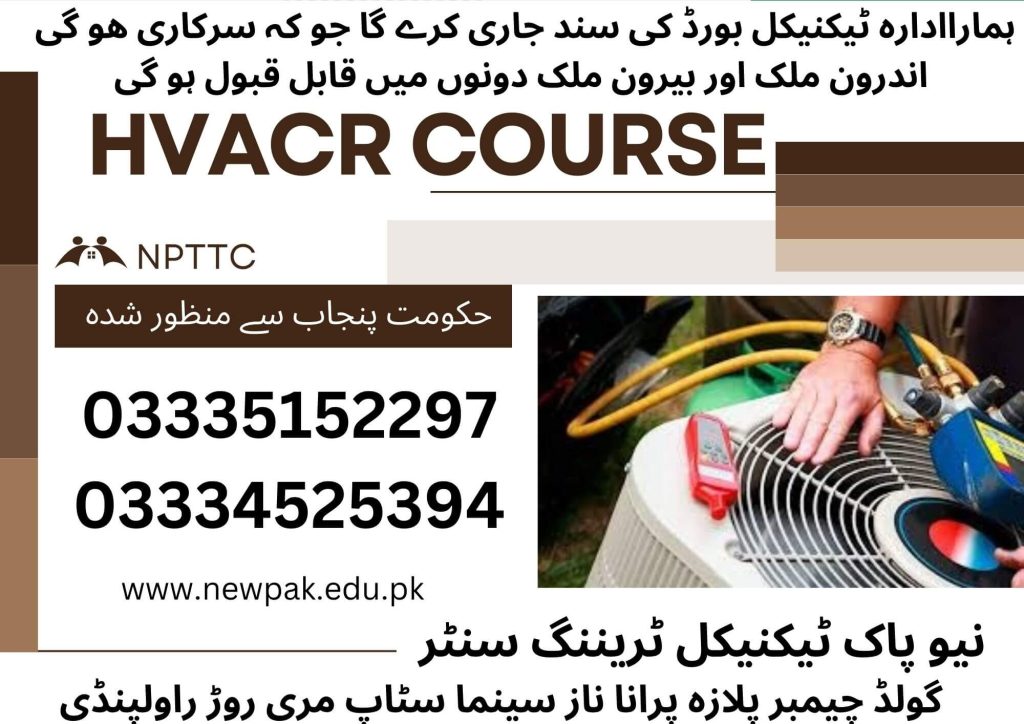
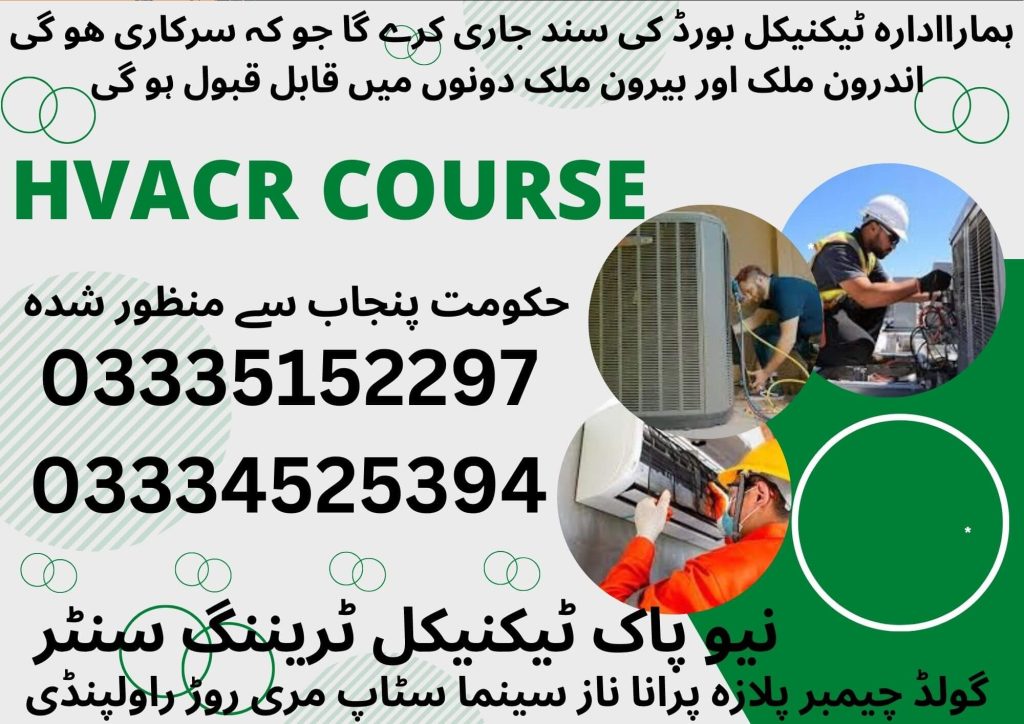
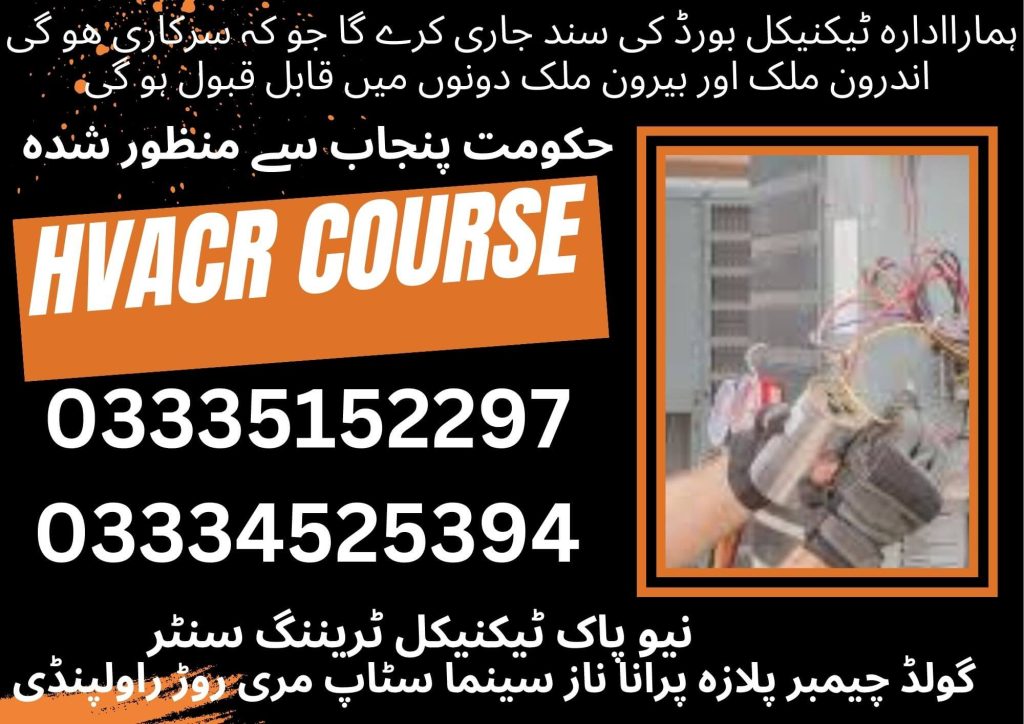
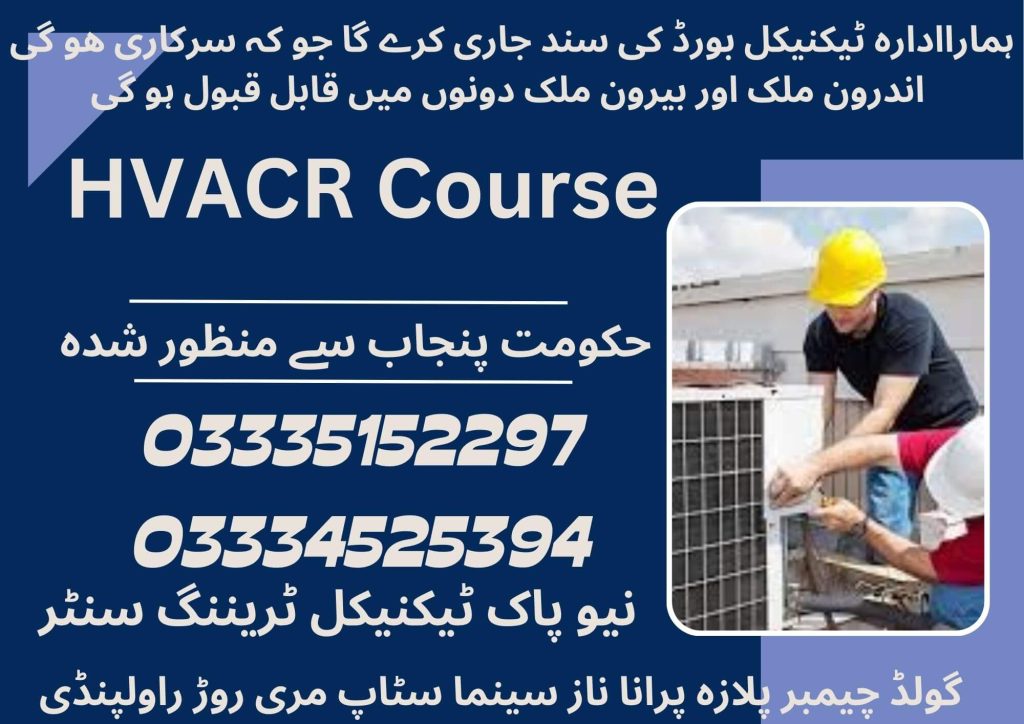
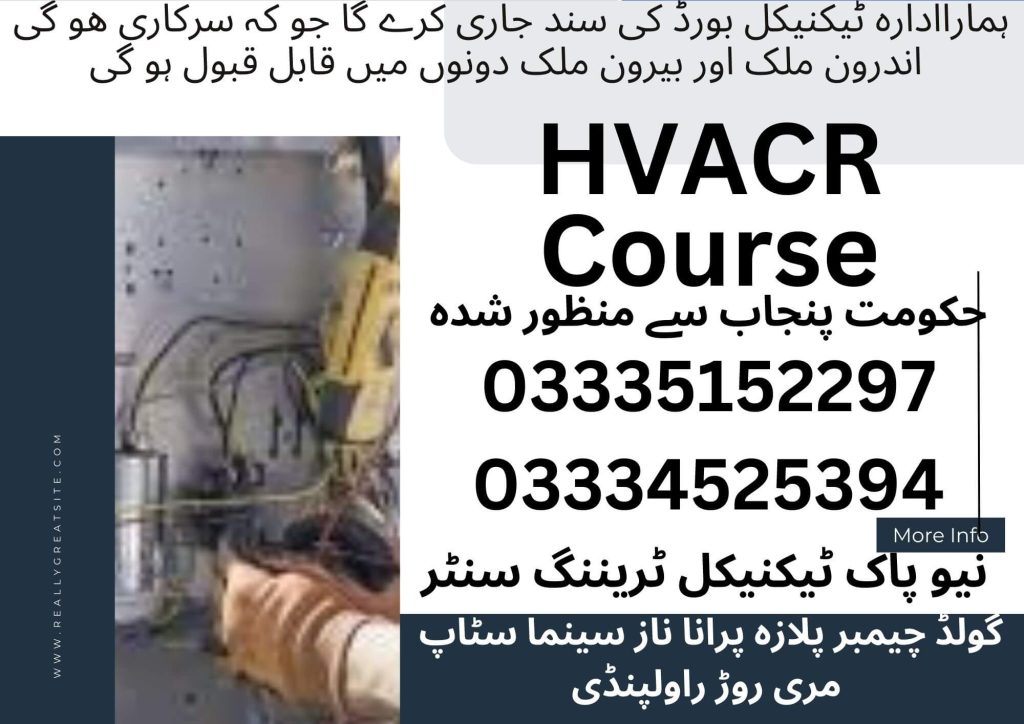
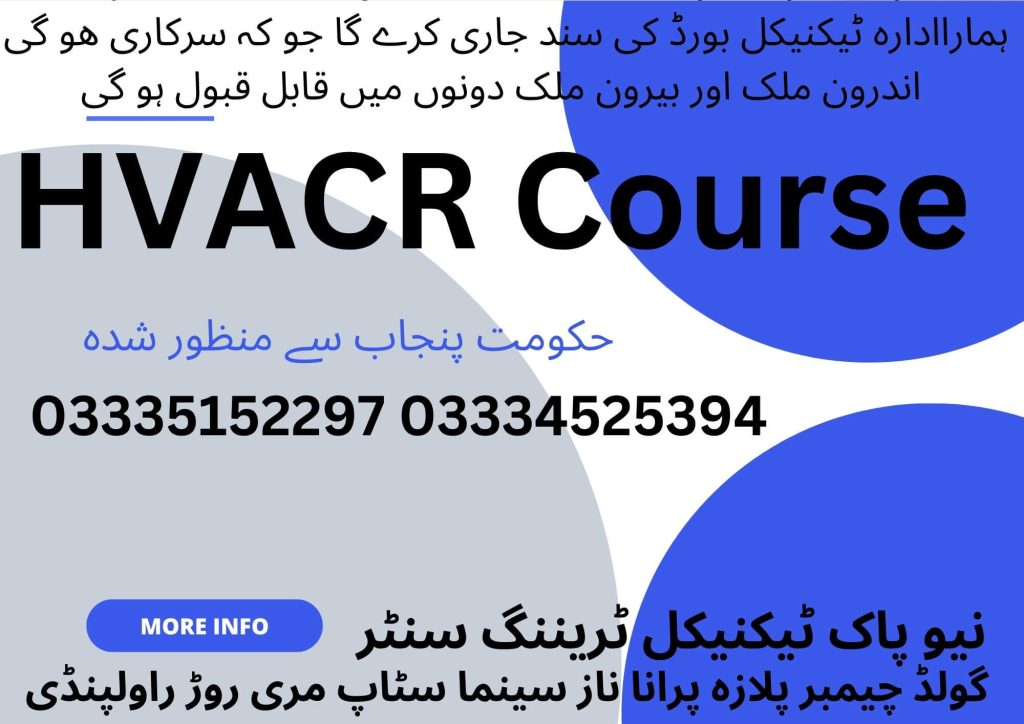
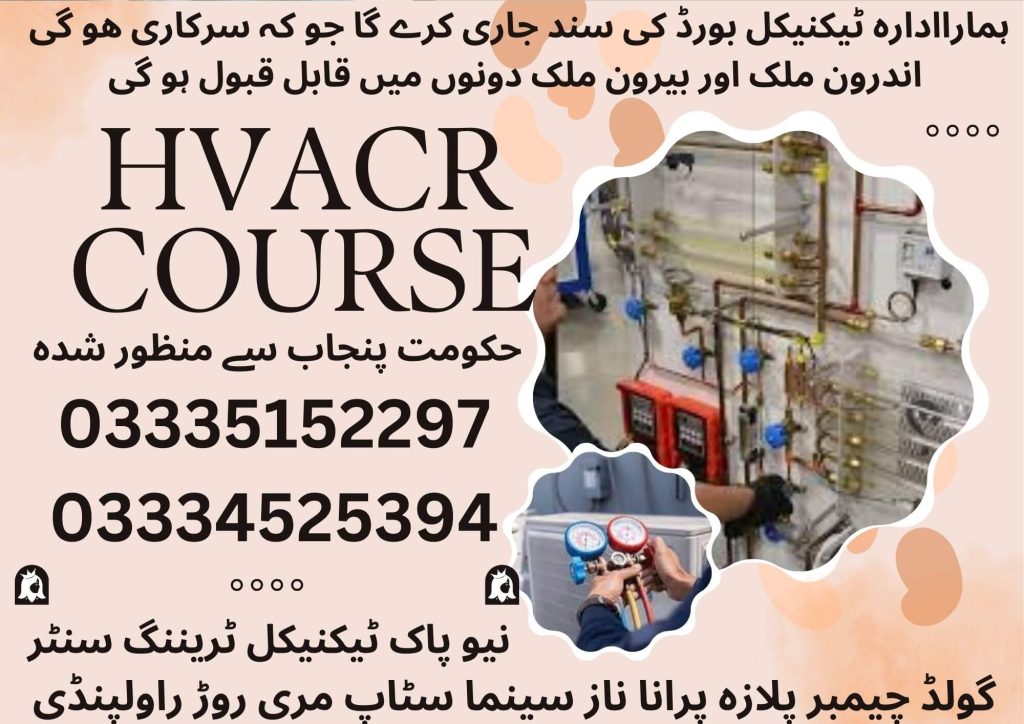
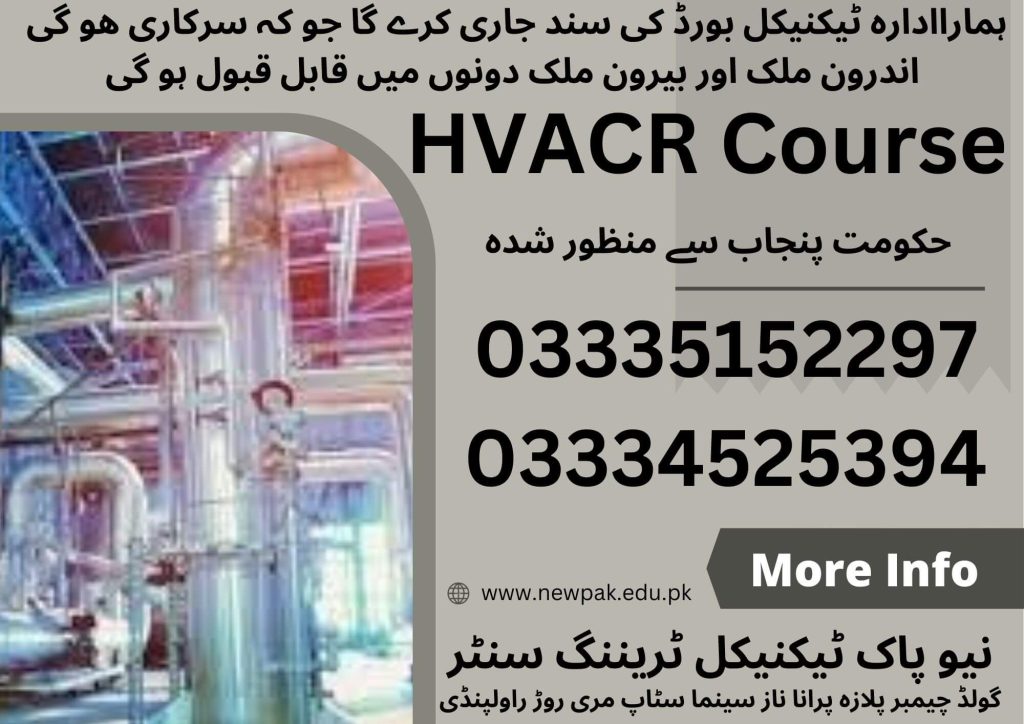
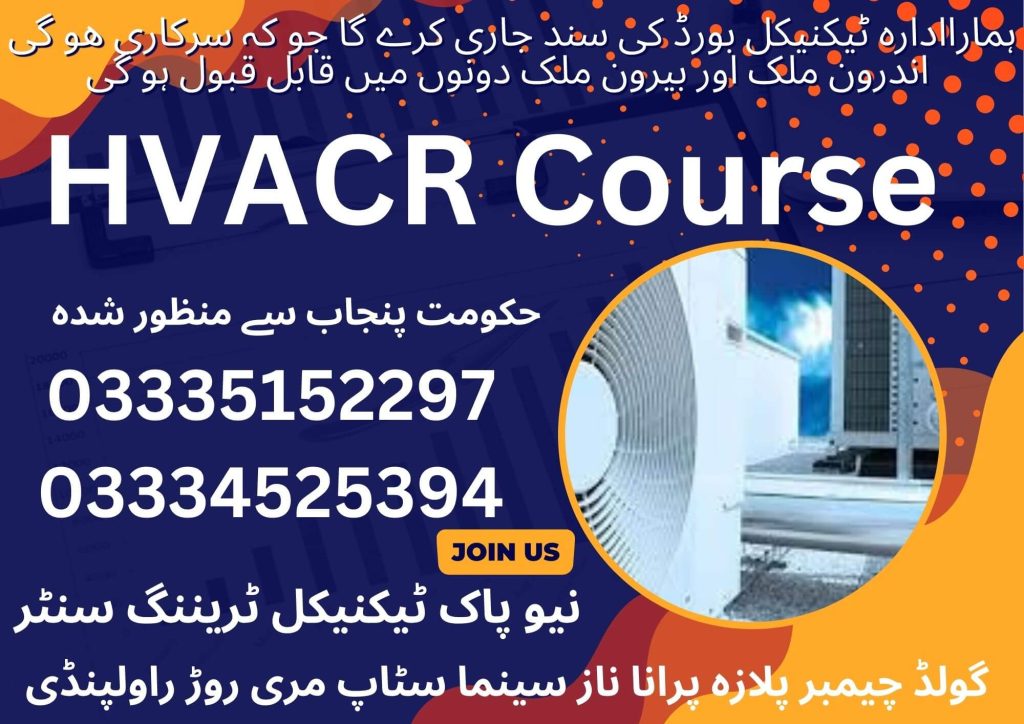
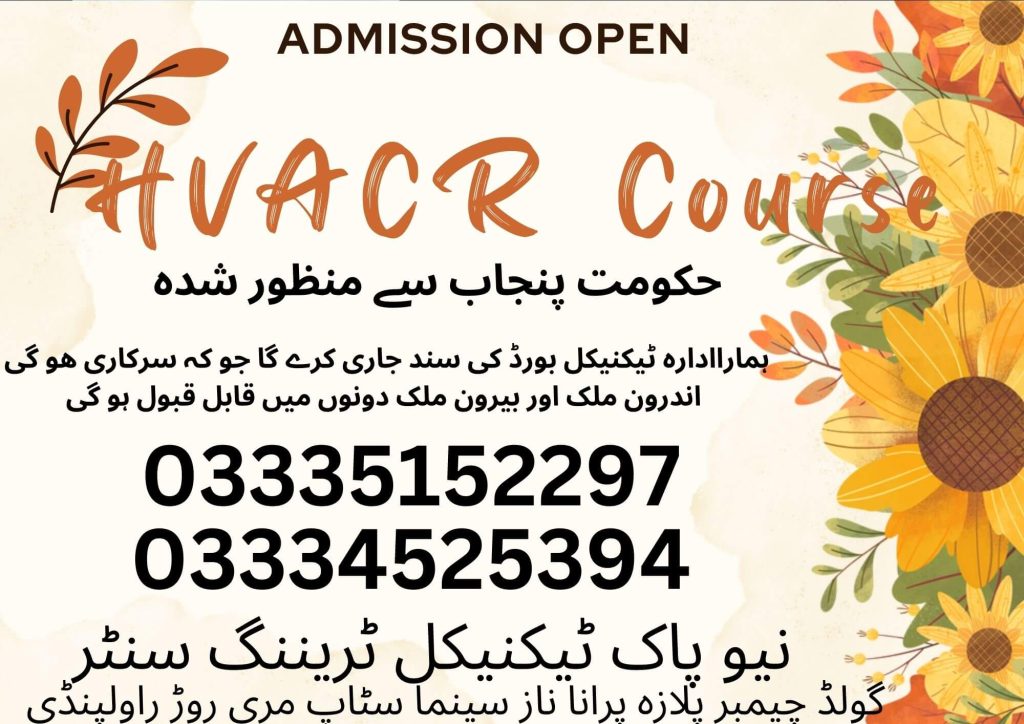
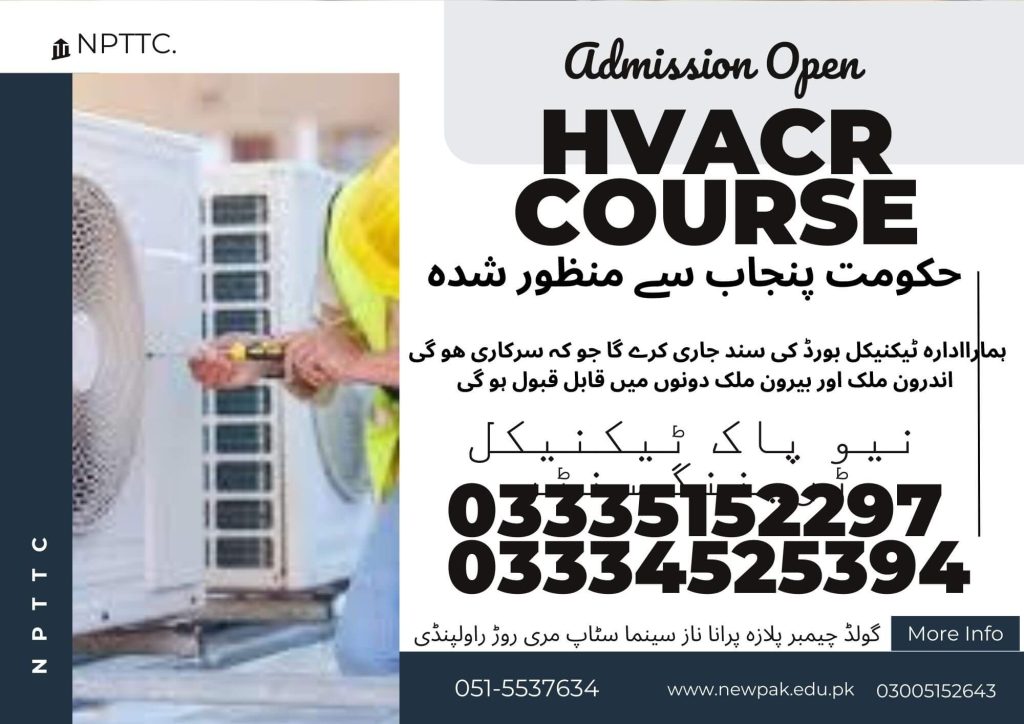
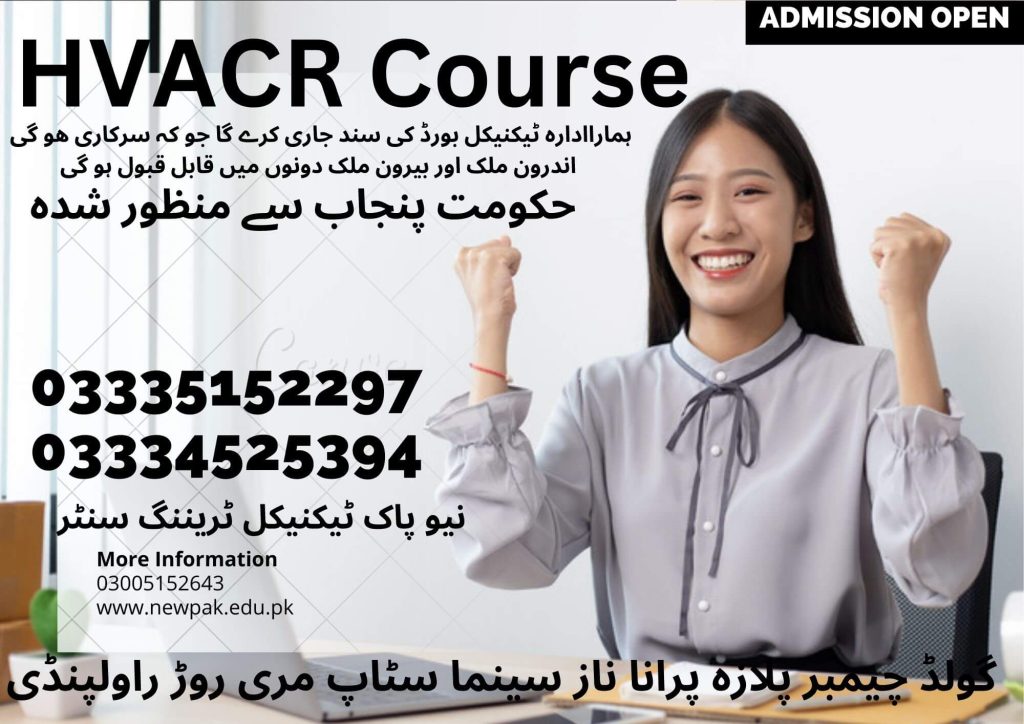
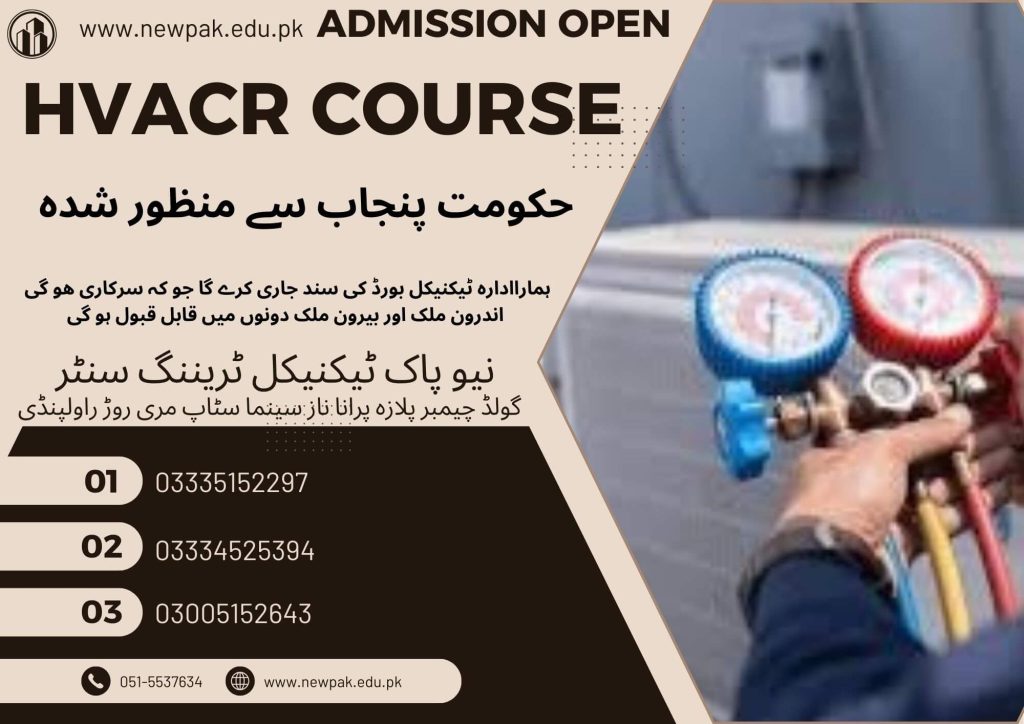
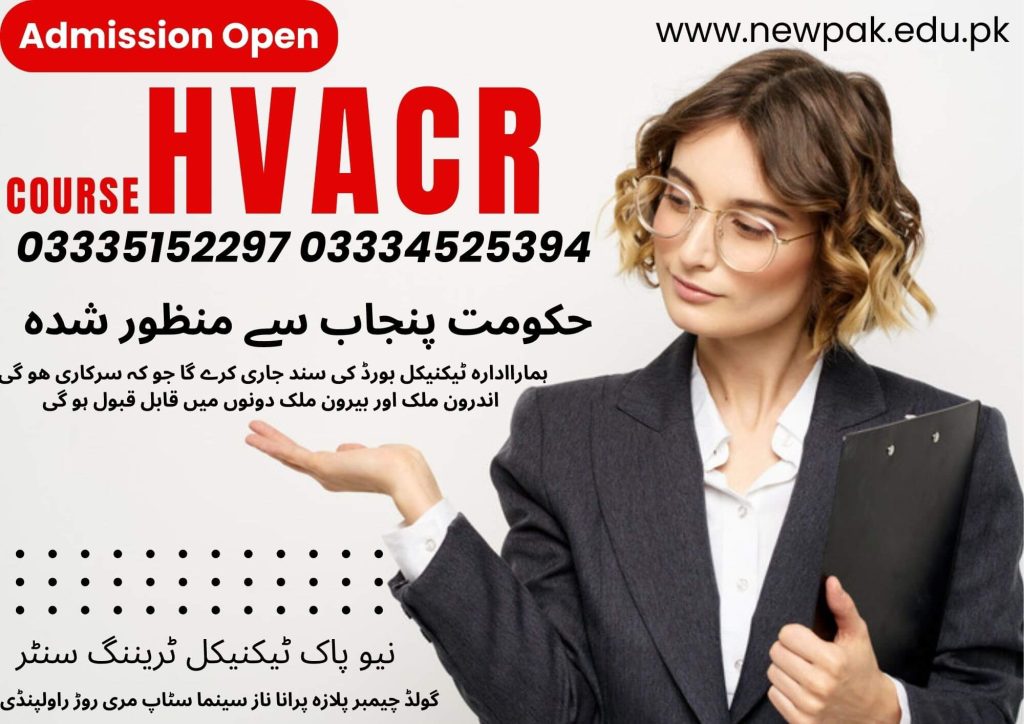

Leave a Comment